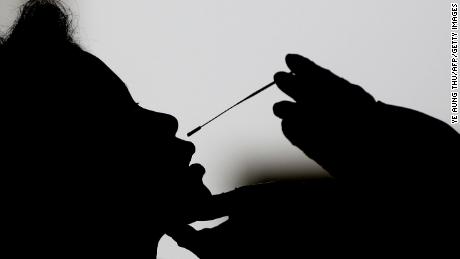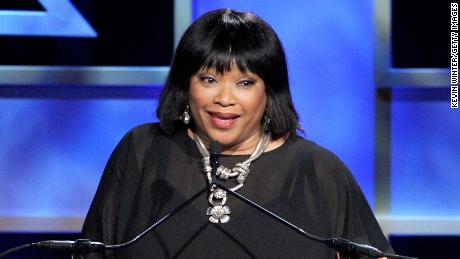Over 2,000 health care workers in Ghana have been infected with coronavirus

Of those infected, six have died — five were engaged in active clinical practice, a health adviser for the office of the president said. "I want to be clear," Dr. Anthony Nsiah-Asare said to CNN on Thursday. "The number of those infected is a cumulative figure and not a number that was a result over a short period of time."Dr. Patrick Kuma-Aboagye, Director-General of the Ghana Health Service, could not specify exactly how 2,000-plus health care workers became infected but initially, he said, the country faced personal protective equipment shortages that made it difficult for workers to adequately protect themselves. Since then, he said, the number of those infected has reduced significantly. "Over 90 percent of the infected has recovered and we now have a sufficient supply of PPE," Kuma-Aboagye said to CNN on Thursday. He added that he continues to work closely with the public and private health sector to ensure the necessary PPE is provided and has confirmed that proper infection prevention and control measures are routinely conducted at all hospitals. Ghana President Nana Akufo-Addo announced in an address to the nation that he would extend an incentive to medical professionals "due to the immense dedication and hard work being exhibited by our health care workers." Each frontline health care worker, he said, would receive an additional 50% allowance added to their basic salary for the next three months.
National figures on the rise
In June, the Ghanaian government began a phased approach to bring the country back to normalcy after a three-week lockdown and months of a strict public gathering ban. But as religious institutions, schools and restaurants have gradually reopened, the number of confirmed cases continues to skyrocket. More than 26,000 people have contracted the virus as of July. Of those, 139 are dead. "The number of cases we currently have should not be translated to mean it is because of the directive to reopen our country," the Director of Public Health at the Ghana Health Service, Dr. Badu Sarkodie, told CNN. "We have taken extreme measures ensuring people adhere to our protocols to maintain social distancing, wear masks, wash hands, and we have ordered that establishments check temperatures before patrons can enter."Sarkodie further maintains that quarantine and treatment centers have been placed throughout the country and his team is "actively and meticulously" monitoring to assess whether tightening of restrictions should be imposed again. Some critics argue that the ease of restrictions came too soon, but Sarkodie insists that the livelihood of Ghanaians had to be taken into consideration when the decision was made to reopen the country.
But as religious institutions, schools and restaurants have gradually reopened, the number of confirmed cases continues to skyrocket. More than 26,000 people have contracted the virus as of July. Of those, 139 are dead. "The number of cases we currently have should not be translated to mean it is because of the directive to reopen our country," the Director of Public Health at the Ghana Health Service, Dr. Badu Sarkodie, told CNN. "We have taken extreme measures ensuring people adhere to our protocols to maintain social distancing, wear masks, wash hands, and we have ordered that establishments check temperatures before patrons can enter."Sarkodie further maintains that quarantine and treatment centers have been placed throughout the country and his team is "actively and meticulously" monitoring to assess whether tightening of restrictions should be imposed again. Some critics argue that the ease of restrictions came too soon, but Sarkodie insists that the livelihood of Ghanaians had to be taken into consideration when the decision was made to reopen the country.  "The possibility of famine and poverty could possibly run rampant and would hRead More – Source
"The possibility of famine and poverty could possibly run rampant and would hRead More – Source
[contf] [contfnew] 
cnn
[contfnewc] [contfnewc]



